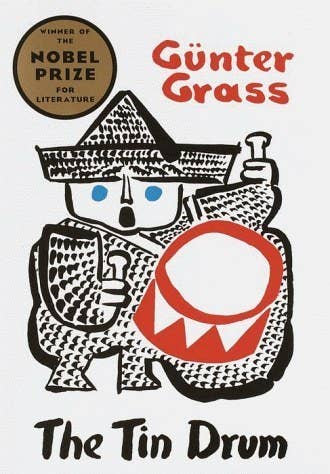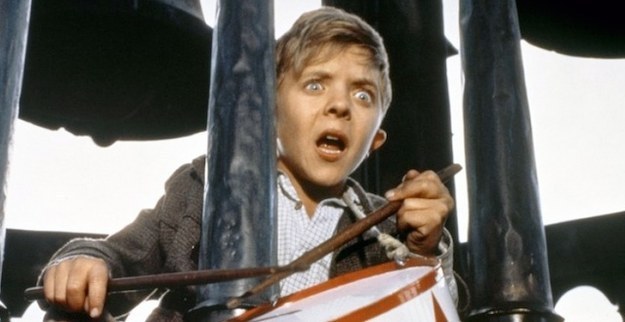
Günter Grass was a novelist
Grass was awarded the Nobel Prize for Literature in 1999 in recognition of the way his "frolicsome black fables portray the forgotten face of history."
His first novel, The Tin Drum, established him not only as a writer capable of magic realism on an epic scale but also as one of the first German artists to openly discuss the persecution of the Jews during the Second World War.
His novels were deeply political, highly scathing and tangibly personal, as even an entire host of unlikely and grotesque characters could not allow the reader to forget their creator.

Günter Grass was a Nazi
Grass revealed in 2006 ahead of his autobiography Peeling the Onion, that he had briefly been enlisted in the Waffen-SS (the armed wing of the Nazi party) as a young man during the war.
This caused a certain amount of outrage, unabashed glee and cries of hypocrisy due to Grass's frequent and usually well-publicised criticisms of Germans unwilling to discuss their country's Nazi past.
Günter Grass was political
Grass's novel were uniformly left-leaning in nature and for several decades he was an avid supporter of the Social Democratic Party of Germany.
Like many political activists of the time Grass believed that East and West Germany should not be reunited, as a united Germany was in danger of once more becoming a threat.

In 2012 he published a poem entitled 'What Must Be Said', which argued against German sales of submarines to Israel. The submarines had capability to carry nuclear warheads and the potential to pose a threat to Iran.
On International Human Rights Day 2013 Grass signed a petition protesting against the revelations of Edward Snowden regarding the mass surveillance carried out on citizens around the world by U.S. security agencies.
Günter Grass was a German-Polish-Kashubian Catholic Atheist
The struggle of Grass's characters for a sense of identity and self did not come out of nothing.
Grass was born in a city which was originally German, lost in the Treaty of Versailles, and which is today known as Gdansk, Poland. Raised by a family of mixed national and ethnic identities, Grass's opinion of the Nazi ethos of a pure Aryan race is clear in his novels:
""This is no Kashubian goose, it's ethnic German, and tastes just like before the war." That solved all the ethnic problems, and there were no further difficulties till the baptism."
Grass was raised Roman Catholic but went on to write novels which were, not unfairly, described as "deliberately and offensively blasphemous" and were also characterised by a preoccupation and fascination with religion.

Günter Grass's conflicted and complicated relationship with his past paralleled the larger journey of his country to find a way of dealing with the atrocities of the Second World War.
He was a controversial political activist, a compelling author and, according to at least one columnist, "a bit of a bloody fool".

